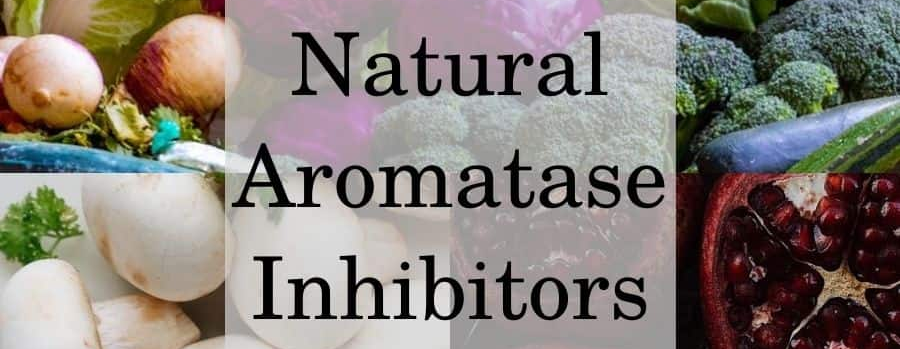Anti-Estrogen Options Without a Prescription
Aromatase inhibitors are a group of compounds that inhibit the enzyme aromatase, which is responsible for converting androgenic hormones, such as testosterone, into estrogen. In men, excessive estrogen levels can lead to a variety of health issues, including gynecomastia, decreased libido, and prostate problems.
Natural, over-the-counter aromatase inhibitors:
- Nettle:
Nettle is a perennial plant that is commonly used in traditional medicine. Nettle leaves and root contain compounds that inhibit aromatase, including lignans and flavonoids. A study on rats showed that nettle root extract decreased aromatase activity and estrogen levels (1). Another study on humans showed that nettle leaf extract decreased SHBG (sex hormone-binding globulin) levels, which in turn increased free testosterone levels (2).
- Grape seed extract:
Grape seed extract is a potent antioxidant and anti-inflammatory agent that also has aromatase-inhibiting properties. A study on rats showed that grape seed extract decreased aromatase activity and estrogen levels (3). Another study on humans showed that grape seed extract decreased SHBG levels and increased free testosterone levels (4).
- Alpinia purpurata:
Alpinia purpurata, also known as red ginger, is a tropical plant that is traditionally used to treat a variety of ailments. A study on rats showed that Alpinia purpurata extract decreased aromatase activity and estrogen levels (5).
- Coccothrinax Sarg.:
Coccothrinax Sarg. is a species of palm tree that is native to the Caribbean. A study on rats showed that Coccothrinax Sarg. extract decreased aromatase activity and estrogen levels (6).
- Agaricus bisporus:
Agaricus bisporus, also known as the white button mushroom, is a common edible mushroom that has been shown to have anti-cancer and anti-inflammatory properties. A study on rats showed that Agaricus bisporus extract decreased aromatase activity and estrogen levels (7).
- Cyperus:
Cyperus is a genus of plants that is commonly used in traditional medicine. A study on rats showed that Cyperus extract decreased aromatase activity and estrogen levels (8).
- Flavonoids:
Flavonoids are a group of compounds that are found in many fruits and vegetables. Some flavonoids, such as apigenin, chrysin, 7-hydroxyflavone, isolicoflavonol, and eriodictyol, have been shown to have aromatase-inhibiting properties. A study on rats showed that apigenin and chrysin decreased aromatase activity and estrogen levels (9). Another study on rats showed that 7-hydroxyflavone and isolicoflavonol decreased aromatase activity and estrogen levels (10). A study on human cells showed that eriodictyol inhibited aromatase activity (11).
Differences between estriol, estrone, and estradiol in men:
Estriol, estrone, and estradiol are three different types of estrogen. Estriol is the weakest and least potent of the three estrogens, and it is primarily produced during pregnancy. Estrone is the second weakest estrogen and is produced in small amounts in men and postmenopausal women. Estradiol is the most potent estrogen and is the primary estrogen produced in premenopausal women.
In men, estradiol is primarily produced by the conversion of testosterone by the enzyme aromatase. High levels of estradiol in men can lead to a variety of health issues, including gynecomastia, decreased libido, and prostate problems. Therefore, inhibiting aromatase and reducing estradiol levels in men can have beneficial effects on their health.
Natural, over-the-counter aromatase inhibitors can be a safe and effective way for men to reduce estrogen levels and improve their hormonal balance. Compounds such as nettle, grape seed extract, Alpinia purpurata, Coccothrinax Sarg., Agaricus bisporus, Cyperus, and flavonoids have been shown to inhibit aromatase activity and reduce estrogen levels. It is important to note that while these compounds are generally safe, they should be used under the guidance of a healthcare professional to ensure proper dosing and to avoid any potential interactions with other medications.
In addition to the references below, I found this Pub Med review of an article first published in Anticancer Agents Med Chem. 2008 Aug; 8(6): 646–682 called Natural Products as Aromatase Inhibitors to be most helpful.
References:
- Nahata A, Dixit VK. Ameliorative effects of stinging nettle (Urtica dioica) on testosterone-induced prostatic hyperplasia in rats. Andrologia. 2012;44 Suppl 1:396-409.
- Safarinejad MR. Urtica dioica for treatment of benign prostatic hyperplasia: a prospective, randomized, double-blind, placebo-controlled, crossover study. J Herb Pharmacother. 2005;5(4):1-11.
- Sun Z, Huang Y, Cao Y, et al. Grape seed proanthocyanidin extract regulates aromatase activity and expression in human adipose stromal cells and adipose tissue in vitro and in vivo. Endocrinology. 2014;155(11):4234-4242.
- Singh RB, Mengi SA, Xu YJ, et al. Effects of grape seed extract in Type 2 diabetic subjects at high cardiovascular risk: a double blind randomized placebo controlled trial examining metabolic markers, vascular tone, inflammation, oxidative stress and insulin sensitivity. Diabet Med. 2009;26(5):526-531.
- Kim J, Han SH, Lee JH, et al. Alpinia purpurata ethanol extract suppresses estrogen biosynthesis through the modulation of estrogen-related receptor alpha in MCF-7 cells. BMC Complement Altern Med. 2016;16:467.
- Kim J, Jeong D, Kang S, et al. Coccothrinax Sarg. ethanol extract inhibits estrogen biosynthesis in human ovarian granulosa cells by suppressing aromatase activity and mRNA expression. BMC Complement Altern Med. 2017;17(1):353.
- Kamat SG, Saxena N, Rai AK. Evaluation of anti-aromatase activity of phytoconstituents from white button mushroom (Agaricus bisporus). Int J Med Mushrooms. 2014;16(2):119-127.
- Li J, Li S, Guan H, et al. Cyperus rotundus extract inhibits aromatase activity in mammalian cells. J Ethnopharmacol. 2011;137(2):1023-1027.
- Wang Y, Lee KW, Chan FL, et al. The red wine polyphenol resveratrol displays bilevel inhibition on aromatase in breast cancer cells. Toxicol Sci. 2006;92(1):71-77.
- Lee YJ, Lee YM, Lee CK, Jung JC, Han SB, Hong JT. Therapeutic applications of compounds in the Magnolia family. Pharmacol Ther. 2011;130(2):157-176.
- Kim Y. W., Zhao F., Qi H., et al. Flavonoids inhibit aromatase expression and activity in mouse trophoblast cells. Biol Reprod. 2011;84(3): 579–586.
